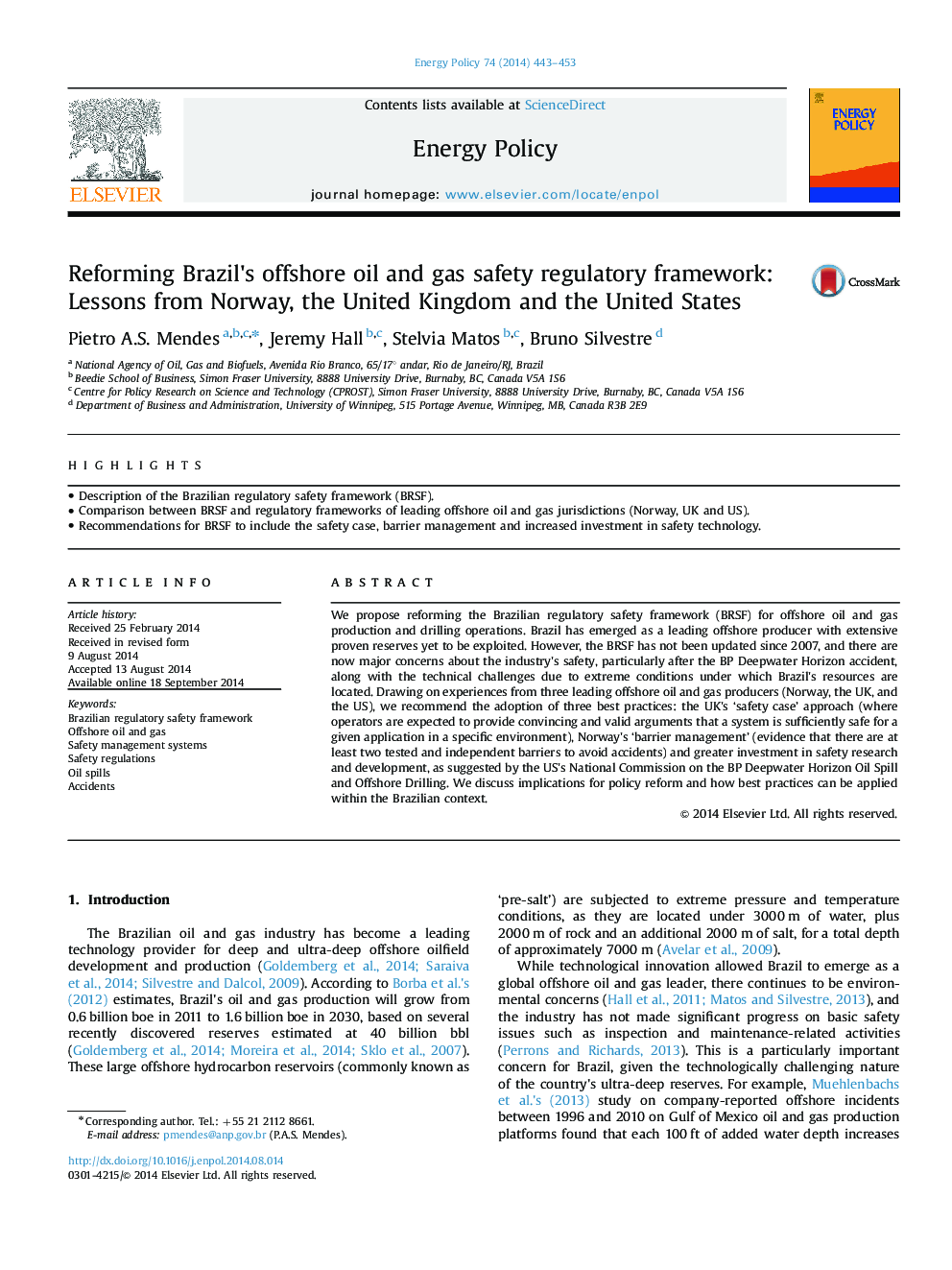| Article ID | Journal | Published Year | Pages | File Type |
|---|---|---|---|---|
| 7401593 | Energy Policy | 2014 | 11 Pages |
Abstract
We propose reforming the Brazilian regulatory safety framework (BRSF) for offshore oil and gas production and drilling operations. Brazil has emerged as a leading offshore producer with extensive proven reserves yet to be exploited. However, the BRSF has not been updated since 2007, and there are now major concerns about the industry׳s safety, particularly after the BP Deepwater Horizon accident, along with the technical challenges due to extreme conditions under which Brazil׳s resources are located. Drawing on experiences from three leading offshore oil and gas producers (Norway, the UK, and the US), we recommend the adoption of three best practices: the UK׳s 'safety case' approach (where operators are expected to provide convincing and valid arguments that a system is sufficiently safe for a given application in a specific environment), Norway׳s 'barrier management' (evidence that there are at least two tested and independent barriers to avoid accidents) and greater investment in safety research and development, as suggested by the US׳s National Commission on the BP Deepwater Horizon Oil Spill and Offshore Drilling. We discuss implications for policy reform and how best practices can be applied within the Brazilian context.
Related Topics
Physical Sciences and Engineering
Energy
Energy Engineering and Power Technology
Authors
Pietro A.S. Mendes, Jeremy Hall, Stelvia Matos, Bruno Silvestre,
